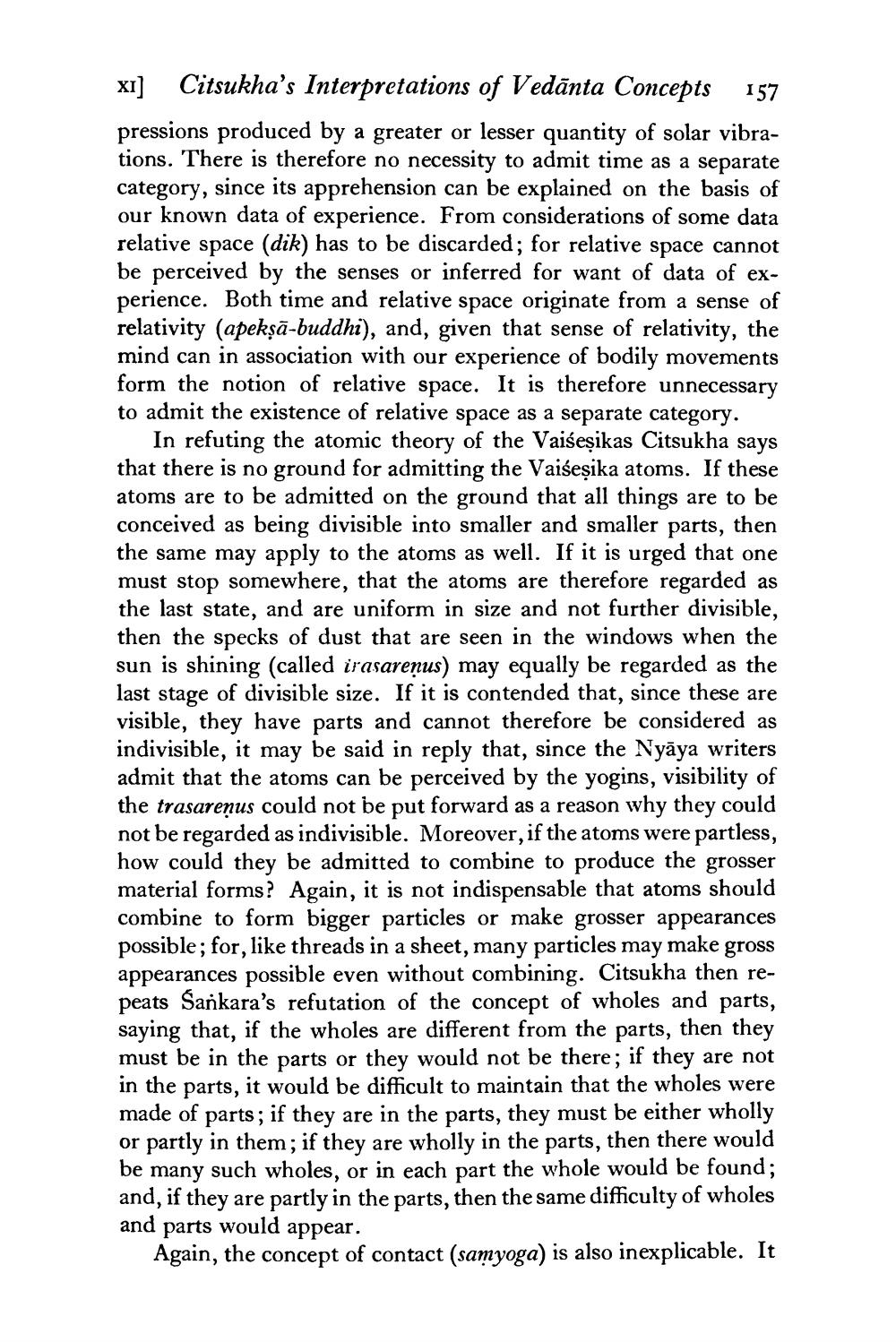________________
XI]
Citsukha's Interpretations of Vedanta Concepts
157
pressions produced by a greater or lesser quantity of solar vibrations. There is therefore no necessity to admit time as a separate category, since its apprehension can be explained on the basis of our known data of experience. From considerations of some data relative space (dik) has to be discarded; for relative space cannot be perceived by the senses or inferred for want of data of experience. Both time and relative space originate from a sense of relativity (apekṣā-buddhi), and, given that sense of relativity, the mind can in association with our experience of bodily movements form the notion of relative space. It is therefore unnecessary to admit the existence of relative space as a separate category.
In refuting the atomic theory of the Vaiseṣikas Citsukha says that there is no ground for admitting the Vaiseṣika atoms. If these atoms are to be admitted on the ground that all things are to be conceived as being divisible into smaller and smaller parts, then the same may apply to the atoms as well. If it is urged that one must stop somewhere, that the atoms are therefore regarded as the last state, and are uniform in size and not further divisible, then the specks of dust that are seen in the windows when the sun is shining (called irasarenus) may equally be regarded as the last stage of divisible size. If it is contended that, since these are visible, they have parts and cannot therefore be considered as indivisible, it may be said in reply that, since the Nyaya writers admit that the atoms can be perceived by the yogins, visibility of the trasareņus could not be put forward as a reason why they could not be regarded as indivisible. Moreover, if the atoms were partless, how could they be admitted to combine to produce the grosser material forms? Again, it is not indispensable that atoms should combine to form bigger particles or make grosser appearances possible; for, like threads in a sheet, many particles may make gross appearances possible even without combining. Citsukha then repeats Sankara's refutation of the concept of wholes and parts, saying that, if the wholes are different from the parts, then they must be in the parts or they would not be there; if they are not in the parts, it would be difficult to maintain that the wholes were made of parts; if they are in the parts, they must be either wholly or partly in them; if they are wholly in the parts, then there would be many such wholes, or in each part the whole would be found; and, if they are partly in the parts, then the same difficulty of wholes parts would appear.
and
Again, the concept of contact (samyoga) is also inexplicable. It




